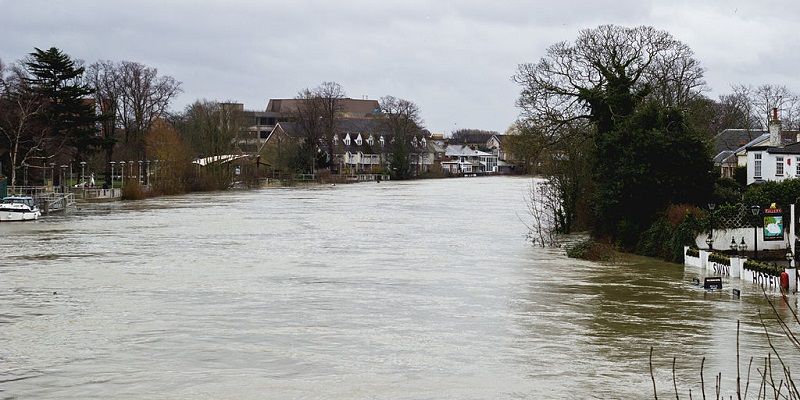
Natural measures to manage river flooding can play a valuable role in flood prevention, but a lack of monitoring means their true potential remains unclear, researchers say.
A team of experts, including Professor Joseph Holden at the University of Leeds, has compiled the evidence on natural flood management in the UK, in order to better inform policy decisions and show where crucial gaps in knowledge lie.
The authors say natural measures have proved useful at preventing flooding after minor rainstorms, and can be a worthwhile component of a larger package of flood prevention measures.
For measures such as tree planting which aim to change the way rainfall runs off the land, the evidence of the impact on flooding is mixed.
Meanwhile, measures to restore natural floodplains by “making room for the river”, for example by removing flood walls and other obstacles, have been shown to reduce flood water levels.
Natural flood management is an area of increasing interest for policy makers, but its implementation can present a complex balancing act between the needs of different groups, including the public, farmers and land owners.
Mixed messages about the efficacy and scalability of natural flood management measures add to the uncertainty surrounding their benefits.
Professor Holden is Director of water@leeds and leader of the Natural Environment Research Council’s Integrated Catchment Solutions Programme (iCASP) at the University’s School of Geography.
He said: “The 2015 Boxing Day floods proved yet again the cost and the danger of extreme floods in the UK. Reactionary measures to prevent flooding may not provide the defences needed as climate change continues to affect our weather and instances of extreme flooding increase.
“We need collaborative approaches to build knowledge and evidence to support the use of natural flood management as part of wider integrated solutions.
"Programmes such as iCASP that involve joined-up thinking and planning across all aspects of river catchment systems will be invaluable in evaluating and establishing the best possible strategies for flood management.”
The review and assessment of scientific evidence about natural flood monitoring came from a variety of sources, ranging from field data to model projections and expert opinion. The findings are published today in Proceedings of the Royal Society.
Lead author Dr Simon Dadson at the University of Oxford said: “What we’ve found is that when it comes to natural flood management, there are some interventions for which there is very strong evidence, but these tend to be in small-scale river catchments.
"One of the main problems decision-makers face is that differences between catchments make it difficult to transfer evidence from one location to the other – and we don’t yet know whether the effects in small catchments can be extrapolated to larger ones.”
Dr Dadson added: “Our message to Defra and the Environment Agency is that they need to establish more systematic large-scale surveys and monitoring programmes, and feed natural flood management into planning at the catchment scale.”
“It’s also really important that catchment-based schemes that have been instigated by communities and local wildlife or river trusts are monitored and evaluated so that the right lessons can be learned for the future.”
Further information:
Image credit: Marcin Cajzer
The full paper, A restatement of the natural science evidence concerning catchment-based ‘natural’ flood management in the United Kingdom, is published in Proceedings of the Royal Society 15 March 2017.
For any additional information, please contact University of Leeds Media Relations Officer Anna Martinez on a.martinez@leeds.ac.uk or +44 (0)113 343 4196.